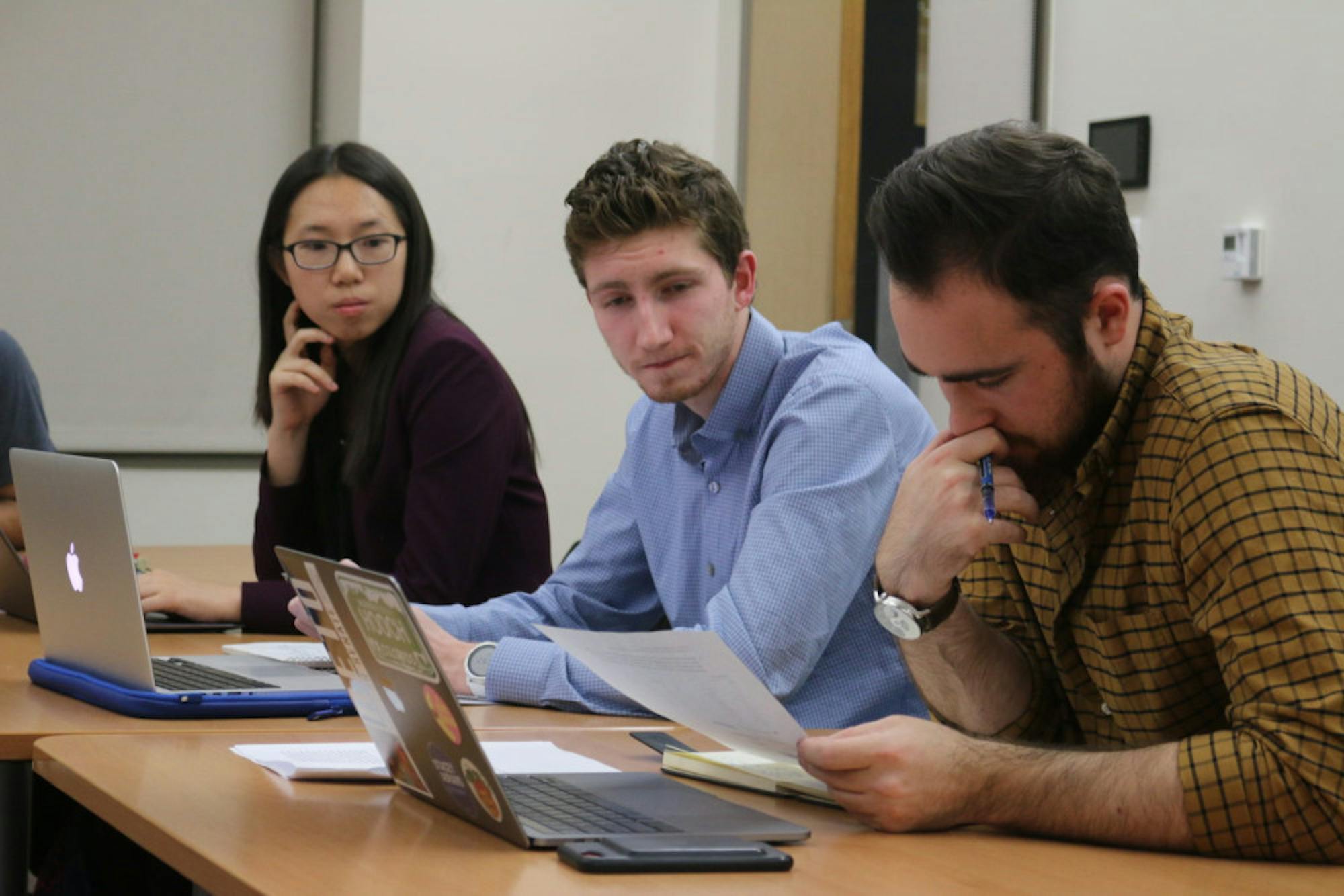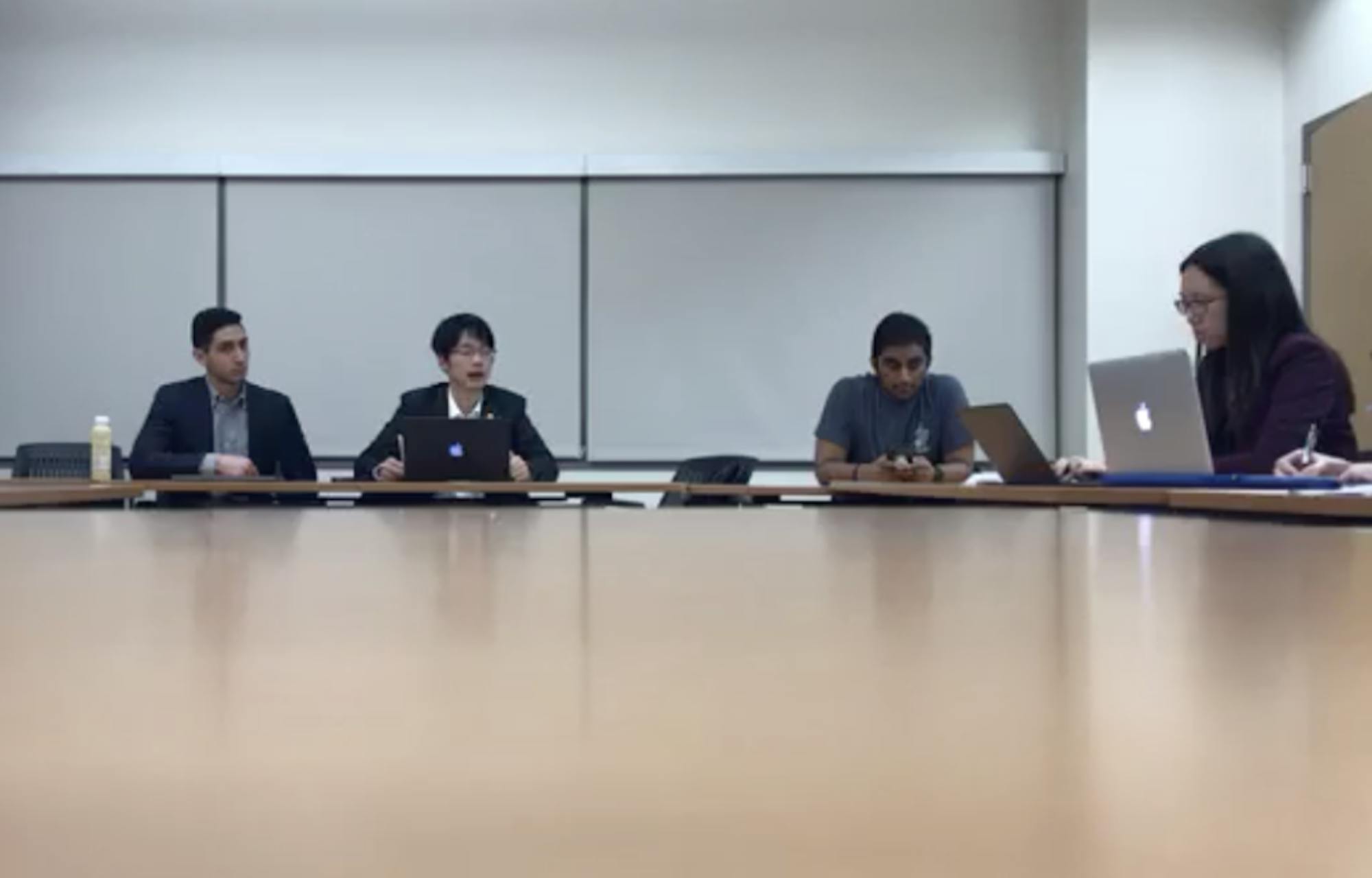
The Constitutional Council ordered Justin Cohen (20C) be reinstated as Elections Board chair on Sunday after hearing arguments from both Cohen and Student Government Association (SGA) President Dwight Ma (17Ox, 19C).
The ruling clarified ambiguities in the Constitution that Ma cited when he fired Cohen on Jan. 4. Ma claimed that he acted constitutionally in firing Cohen, because the Constitution states that “all non-elected members and officers serve at the pleasure of the President of the SGA.” The Elections Board chair is not an elected position and is appointed by the SGA president.
In the ruling, the Constitutional Council wrote that the SGA president may only remove members of the executive board.
“It would be impossible for appointed justices or interim legislators to keep their roles separate from and equal to the executive if they have to serve at the pleasure of the President,” the ruling reads. “Therefore, the Council concludes that the executive authority power to remove non-elected members may only be exercised within the executive branch; in other words, the President may only remove other members of the executive branch.”
Cohen v. Ma by on Scribd
An hour before the hearing was scheduled to start on Wednesday, Ma emailed the Constitutional Council to inform it that he had reinstated Cohen to his position. However, the Constitutional Council decided to hold the hearing regardless because Cohen had not withdrawn his challenge and because constitutional questions remained unanswered.
During the hearing, Cohen said he believed Ma acted unethically by firing him and that his decisions were based entirely on impulse.
“I don’t think I’ve ever been more disrespected by a member of this body or anyone period,” Cohen said. “Dwight [Ma] has shown that he really didn’t think this option through, that he made an impulsive decision and is now trying to go back on that decision.”
Cohen argued that his termination was unconstitutional because the Elections Board derives its power from the legislative branch, not the executive. Cohen pointed to a clause in the Constitution which states that the power to oversee elections is given to the Elections Board by the legislature.

During his defense, Ma said he fired Cohen because he thought Cohen set a timeline for the upcoming spring elections without properly receiving consent or discussing the dates from other members of the Elections Board.
“I was informed by Yiyang [Mao], … the elections vice chair, that the consensus had not been reached in the Elections Board or the divisional councils,” Ma said.
Cohen told the Constitutional Council that he reached out to as many branches of student government as he could.
“I consulted with almost anyone I could from my board, to SGA, to divisional councils, to the speaker of the legislature, to the Electoral Reforms Commission, all the way to the coding team at the SILT office,” Cohen said.
Cohen said he was pleased with the ruling in a Sunday email to the Wheel.
“I am happy the Constitutional Council ruled in my favor and has shown that Dwight’s actions were both unconstitutional and an abuse of power.”
However, Cohen also wrote that he believed “the damage is irreparable when it comes to this spring’s election.”
Ma told the Wheel on Sunday that he is “happy this matter has been resolved.”
“Justin did a phenomenal job outside of the timeline so it only made sense to bring him back onboard,” Ma said. “I look forward to a fair and transparent election process.”




